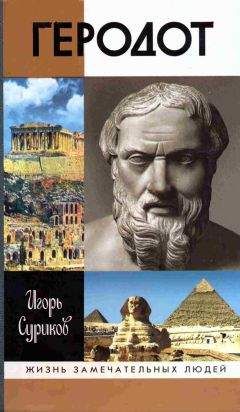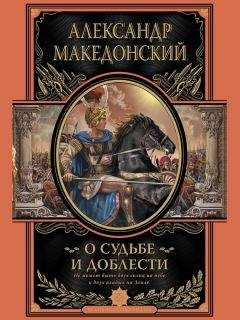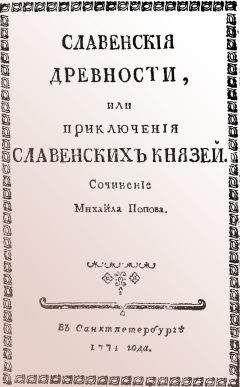88
Цит. по: Герни О. Р. Хетты. М., 1987. С. 23.
2-я книга Паралипоменон. 13. 1.
См.: Тахо-Годи А. А. Ионийское и аттическое понимание термина «история» и родственных с ним // Вопросы классической филологии. Вып. 2. М., 1969. С. 107 и след.
См.: Sealey R. Thucydides, Herodotos, and the Causes of War // Classical Quarterly. 1957. Vol. 7. № 1/2. P. 1–12.
Cм.: Diller H. Zwei Erzahlungen des Lyders Xanthos // Navicula Chiloniensis. Leiden, 1956. S. 66–78.
Heidel W.A. Op.cit.
См.: Lendle O. Einfuhrung in die griechische Geschichtsschreibung. Darmstadt, 1992. S. 38.
См.: Toyl D. L. Dionysius of Halicarnassus on the First Greek Historians // American Journal of Philology. 1995. Vol. 116. № 2. P. 279–302.
Каллистов Д. П. Указ. соч. С. 87.
См.: Суриков И. Е. Эволюция религиозного сознания афинян… С. 242.
См.: Hart J. Op. cit. P. 179.
См.: Wipprecht F. Zur Entwicklung der rationalistischen Mythendeutung bei den Griechen. Tubingen, 1902. S. 46.
См.: Зелинский Ф. Ф. Указ. соч. СПб., 1907. Т. 3. С. 153 и след.
См.: Доватур А. И. Повествовательный и научный стиль Геродота. М., 1957.
Cм.: Decharme P. La critique des traditions religieuses chez les Grecs des origines au temps de Plutarque. P., 1904. P. 65 f.
Фролов Э.Д. Факел Прометея. С. 111.
См.: Hart J. Op. cit. P. 179.
См.: Momigliano A. Essays in Ancient and Modern Historiography. Oxford, 1977. P. 142.
См. также: Myres J. L. Op. cit.; Solmsen F. Op. cit.
Jacoby F. Herodotos // Paulys Realencyclopadie der classischen Alter-tumswissenschaft. Supplbd. 2. Stuttgart, 1913. S. 205–520.
См.: Кузнецова Т. К, Миллер Т. В. Указ. соч. С. 37.
Ср.: HartJOp. cit. P. 177.
См.: Myres J. L. Op. cit.
См.: Распаров M. Л. Неполнота и симметрия в «Истории» Геродота // Избранные труды. М., 1997. Т. 1. С. 483–489
Cм., например: Кузнецова Т.Н., Миллер Т. А. Указ. соч.; Артог Ф. Первые историки Греции: историчность и история//ВДИ. 1999. № 1. С. 178 и след.
См.: Connor W. R. Thucydides. Princeton, 1984. Passim; Buck R. J. The Sicilian Expedition // Ancient History Bulletin. 1988. Vol. 2. № 4. P. 78 f; Will W. Thukydides und Perikles: Der Historiker und sein Held. Bonn, 2003. S. 67 f.
См.: Herman G. Nikias, Epimenides and the Question of Omissions in Thucydides//Classical Quarterly. 1989. Vol. 39. № 1. P. 83–93; Badian E. Op. cit. P. 27 f, 59; Hanson V. D. Introduction // The Landmark Thucydides: A Comprehensive Guide to the Peloponnesian War. NY, 1996. P. XXII.
Дискуссию по поводу источников Геродота см.: Fehling D. Herodotus and his 'Sources1: Citation, Invention and Narrative Art. Leeds, 1989; Vandiver E. Heroes in Herodotus: The Interaction of Myth and History. Frankfurt a. M., 1991; Pritchett W. K. The Liar School of Herodotus. Amsterdam, 1993; Thomas R. Herodotus in Context: Ethnography, Science and the Art of Persuasion. Cambridge, 2000; Bichler R. Herodots Welt: Der Aufbau der Historie am Bild der fremden Lander und Volker, ihrer Zivilisation und ihrer Geschichte. 2 Aufl. В., 2001
См.: Raubitschek А. E. The School of Hellas: Essays on Greek History, Archaeology, and Literature. Oxford, 1991. P. 292–294.
Противопоставление Геродота и Фукидида см.: Коллингвуд Р. Д. Указ. соч. С. 30–31.
Гуревич А. Я. Средневековый мир: культура безмолвствующего большинства. М., 1990. С. 9.
См.: HartJ.Op. cit. P. 177.
См.: Cook Е. F. The Odyssey in Athens: Myths of Cultural Origins. Ithaca, 1995; Sauge A. «LTliade», poeme athenien de l'epoque de Solon. Bern, 2000.
О категориях времени и пространства у Геродота см.: Рауеп Р. Comment resister a la conquete: temps, espace et recit chez Herodote // Revue des etudes grecques. 1995. Vol. 108. P. 308–338; Alonso-Nunes J. Herodotus. Conception of Historical Space and the Beginnings of Universal History// Herodotus and his World. P. 145–152.
Cм.: Hall E. Inventing the Barbarian: Greek Self-definition through Tragedy. Oxford, 1991.
См.: Виц-Маргулес Б. Б. Античные теории общественного развития и прогресса // Античный полис: Проблемы социально-политической организации… С. 134–144.
См.: Gschnitzer F. Die sieben Perser und das Konigtum des Dareios: Ein Beitrag zur Achaimenidengeschichte und zur Herodotanalyse. Heidelberg, 1977; Baker J. M. Op. cit.
См.: McGlew J. F. Tyranny and Political Culture in Ancient Greece. Ithaca, 1996. P. 146.
См.: Herman G. Patterns of Name Diffusion within the Greek World and Beyond // Classical Quarterly. 1990. Vol. 40. № 2. P. 349–363.
См.: Huxley G. L. Herodotos on Myth and Politics in Early Sparta // Proceedings of the Royal Irish Academy. Section С — Archaeology, Celtic Studies, History, Linguistic, Literature. Vol. 83. № 1. P. 3.
См., например: Georges P. Barbarian Asia and the Greek Experience: From the Archaic Period to the Age of Xenophon. Baltimore, 1994. P. 152 f.
См.: Badian E. Op. cit. P. 109 f.
См.: Баклер Д. Спарта, Фивы, Афины и равновесие сил в Греции (457–359 гг. до н. э.) // Межгосударственные отношения и дипломатия в античности. Казань, 2000. Ч. 1. С. 75–94.
См.: Mancini М. Erodoto е il nominative dei nomi propri persiane // Atti della Accademia nazionale dei Lincei. Classe di scienze morali, storiche e filosofiche. Rendiconti. 1991. Vol. 2. Fasc. 2. P. 179–190.
См.: Baker J. M. Op. cit.
Cм.: Немировский А. А. Мелитена, Армения и «Царская дорога» Ахеменидов // Studia historica. Вып. 6. С. 25–39.
См.: Там же. С. 32.
См.: Борухович В. Г Территория Эллады и Египет в древнейший период (III — середина II тысячелетия до н. э.) // Ученые записки Горьковского государственного университета им. Н. И. Лобачевского. Серия историческая. Средние века и Древний мир. Вып. 67. Горький, 1965. С. 3–25.
См.: Burkert W. The Orientalizing Revolution: Near Eastern Influence on Greek Culture in the Early Archaic Age. Cambridge Mass., 1992.
См.: Борухович В. Г Египет и греки в VI–V вв. до н. э. // Ученые записки Горьковского государственного университета. Серия историческая. Средние века и Древний мир. Вып. 67. С. 74—137.
См., например: Lloyd А. В. Herodotus Book II. Introduction. Leiden, 1975. P. 55–57.





